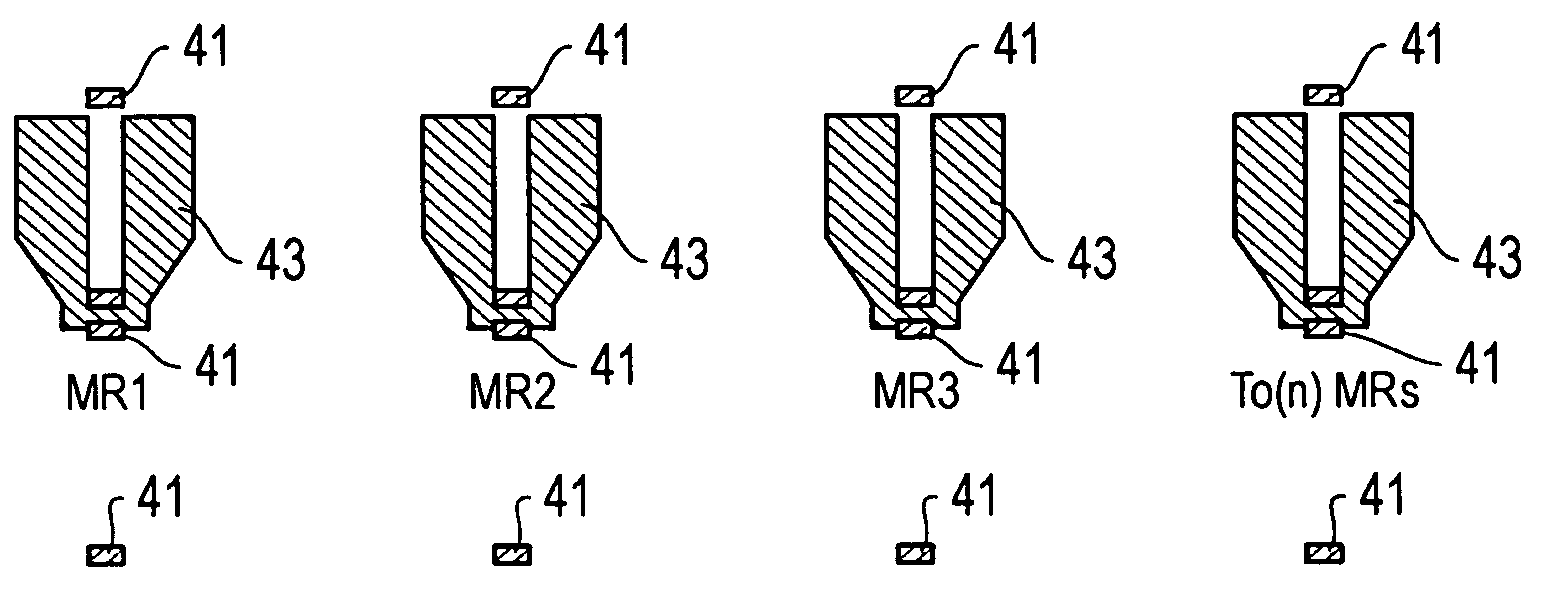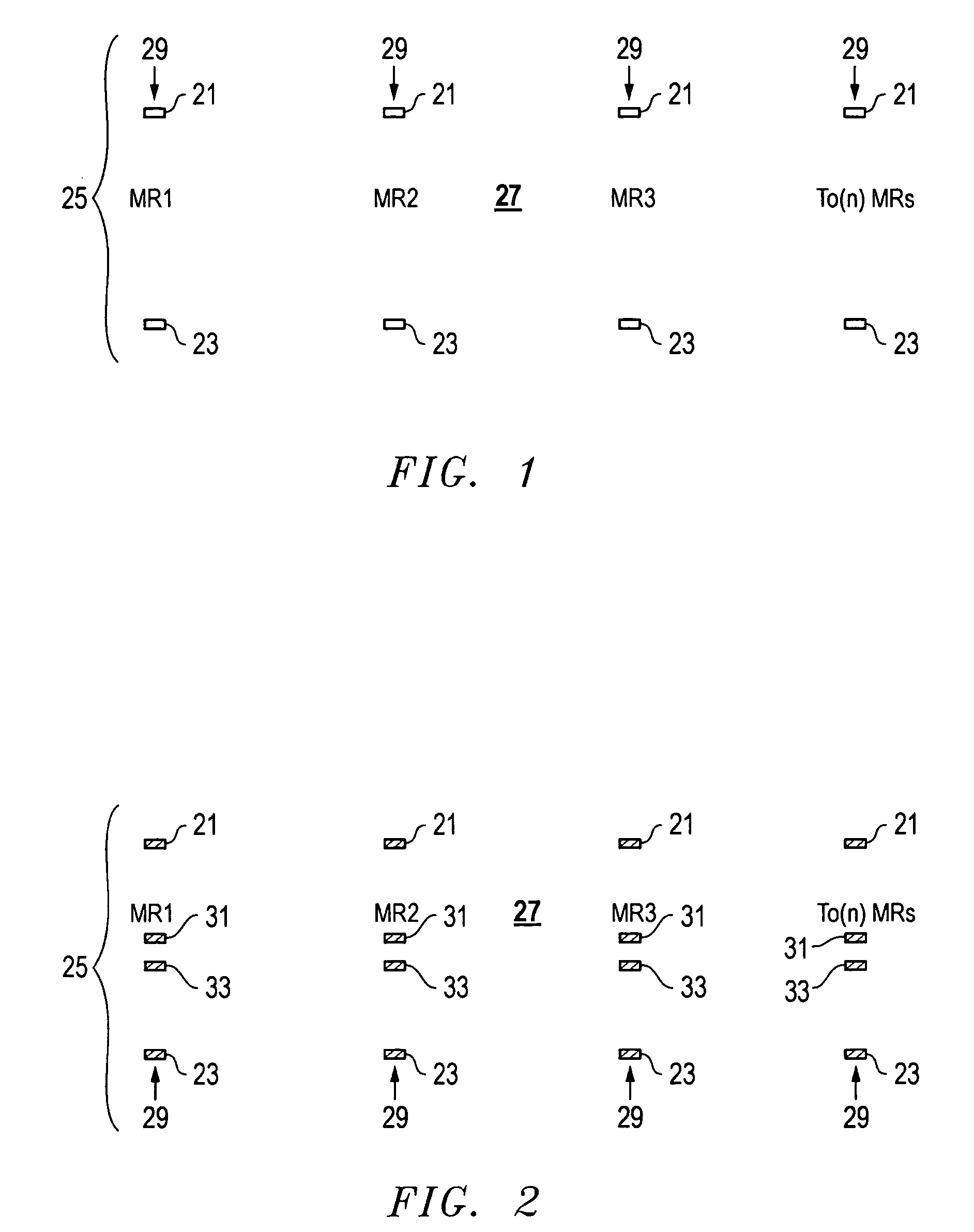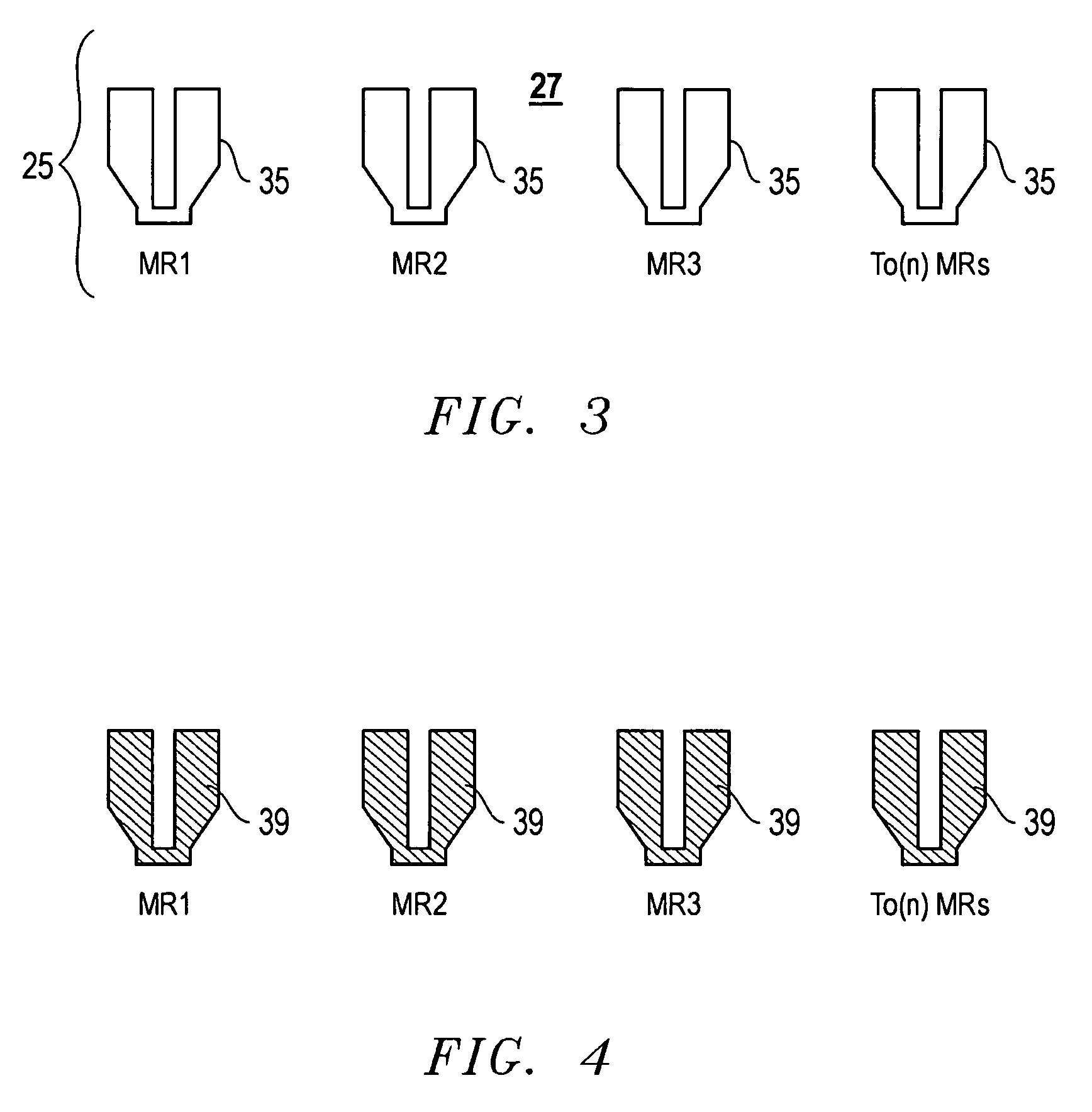System and method for charge-balanced, continuous-write mask and wafer process for improved colinearity
a write mask and continuous write technology, applied in the manufacture of flux-sensitive heads, magnetic recording, thin film heads, etc., can solve the problems of insignificant contributor to the overall control of stripe height, image placement error, image placement error, etc., to maximize resolution and image edge fidelity, reduce write time, and small spot size
- Summary
- Abstract
- Description
- Claims
- Application Information
AI Technical Summary
Benefits of technology
Problems solved by technology
Method used
Image
Examples
Embodiment Construction
[0032] Referring to FIGS. 1-10, one embodiment of a system and method for a charge-balanced, continuous write mask and wafer process is shown. The first step is to write “charge-balancing” features 21, 23 in order to build a critical negative image magneto resistive (MR) stripe defining field. In this disclosure, although a single mask background and foreground is preferred, a double mask may be used. The system of the present invention has several fields, including foreground in one, test sites in continuous write mode in another, background non-critical targets in another, critical targets in another, etc.
[0033] In the prior art, design systems required designers to design in correct positive, correct negative, reverse positive, reverse negative format considering the use of negative or positive photo-resist. Thereafter the post-processing programs are given instructions to write as correct positive, correct negative, reverse positive, and reverse negative depending on what is wa...
PUM
| Property | Measurement | Unit |
|---|---|---|
| charge- | aaaaa | aaaaa |
| charge-balancing | aaaaa | aaaaa |
| size | aaaaa | aaaaa |
Abstract
Description
Claims
Application Information
 Login to View More
Login to View More - R&D
- Intellectual Property
- Life Sciences
- Materials
- Tech Scout
- Unparalleled Data Quality
- Higher Quality Content
- 60% Fewer Hallucinations
Browse by: Latest US Patents, China's latest patents, Technical Efficacy Thesaurus, Application Domain, Technology Topic, Popular Technical Reports.
© 2025 PatSnap. All rights reserved.Legal|Privacy policy|Modern Slavery Act Transparency Statement|Sitemap|About US| Contact US: help@patsnap.com



